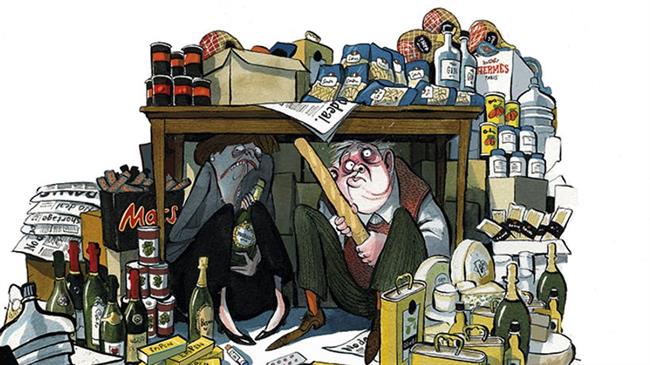The British government is trying to scare the EU into making concessions to soften no-deal Brexit
Lately, there appears to be no end to negative stories relating to no-deal Brexit preparations.
The Sunday Times on August 18 reported on food shortages, price rises and possibly even problems with the water supply.
This information has been drawn from the “Yellowhammer” document, a government-compiled dossier which sets out covert planning for a no-deal Brexit.
Marked “Official-Sensitive” by the Cabinet Office, the contents of Operation Yellowhammer require security clearance, on a “need to know” basis, in order to be accessed.
This raises questions about how and why the document was leaked, and crucially, whether the leak was intentional.
Despite Michael Gove’s assertion that the document reflected “a worst-case scenario”, and that Brexit planning has accelerated in the past three weeks, the British media have tried their hardest to sensationalise the issue.
Rosamund Urwin, the lead journalist covering no-deal Brexit at the Sunday Times, claimed there is even a “Black Swan” document, which sets out an even harsher post-Brexit scenario, to which Gove had a humorous reply.
“Black Swan is not an HMG doc but a film about a ballet dancer”, tweeted Gove, who is one of the key ministers in charge of no-deal planning.
Reflecting the febrile atmosphere around no-deal Brexit, scaremongering stories or “project fear” as the Brexiteers call them, appear by the hour.
The latest are reports that Home Secretary, Priti Patel, is planning to end freedom of movement rights for European Union (EU) citizens on 31 October.
The story was initially run by The Independent on 19th August, which claimed that Patel was determined on this course of action, despite “warnings of chaos and of people trapped in legal limbo”.
On the face of it, this is a dramatic shift from previous government policy under former PM Theresa May. Under those plans freedom of movement would have been phased out after a 21-month post-Brexit transition period.
Whilst the British government has confirmed that EU migration rules will “end straight after no-deal”, there is reason to be sceptical about the government’s real intentions.
Abruptly ending, or restricting, freedom of movement for EU citizens will adversely affect British citizens living and working in EU countries. This is not a risk that a fragile Tory government, which survives by a working majority of only one MP, can easily take.
It appears that Boris Johnson may be bluffing in order to elicit concessions from the EU side.
The room for negotiations is rapidly closing with the G7 summit in Biarritz, France, at the end of August, widely seen as the last opportunity to avoid a no-deal Brexit.
But even in the event of a no-deal Brexit, Johnson hopes to elicit concessions from the EU in order to soften the immediate post-Brexit political and economic landscape.
This approach is evident in Johnson’s negotiation style with EU leaders over the controversial Irish “backstop”.
The backstop is a position of last resort, to avoid the return of a hard border on the island of Ireland. If implemented, it would involve Northern Ireland remaining aligned to some EU rules and regulations.
By adopting a hardline ideological stance on the backstop, describing it as “inconsistent with the sovereignty of the UK”, Johnson is hoping to leverage EU fears of a return of a hard border between Northern Ireland and the Irish Republic.
Thus, scaremongering and bluffing is the Tory government’s approach to negotiations in the closing stages of Brexit.
By Rupert Cansell, Investigative Journalist
Russia downs over 40 Ukrainian drones as Putin vows 'destruction' on Kiev
VIDEO | Yemen: A bone in Israeli neck
D-8’s role in Iran’s economy after Cairo summit
China slams US as ‘war-addicted’ threat to global security
China ‘firmly opposes’ US military aid to Taiwan
VIDEO | Press TV's News Headlines
President Yoon Suk Yeol to be removed from office
At least 19 Gazans killed by Israeli airstrikes since dawn: Medics










 This makes it easy to access the Press TV website
This makes it easy to access the Press TV website